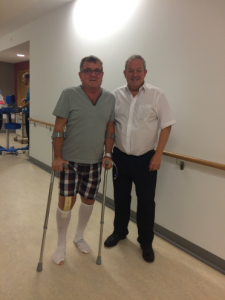 Following your surgery you will be moved from the operating theatre to the recovery room where you will be closely monitored by the nursing staff until it is safe for you to be taken back to your room.
Following your surgery you will be moved from the operating theatre to the recovery room where you will be closely monitored by the nursing staff until it is safe for you to be taken back to your room.
For some operations such as anterior cruciate ligament reconstruction and joint replacement a post-operative x-ray is required and this may be carried out en route back to your room.
Once the effects of the anaesthetic have worn off you will be encouraged to eat and drink and will be mobilised as soon as is practicable.
If your procedure is a day case, you will be seen by the physiotherapists following your surgery who will ensure that you are suitably mobile and safe to be discharged home.
Simon will come back to the ward to review you and discuss your procedure with you before you go home. You will normally be given an injection into the abdomen prior to discharge to reduce the risk of deep vein thrombosis.
If your procedure requires an overnight stay in hospital, Simon will return to the ward to review you and discuss your procedure in addition to making plans for your post-operative rehabilitation whilst in hospital.
You will be seen regularly by the nursing staff and physiotherapists to progress your initial recovery and once you are fit to be discharged home, this will be discussed with Simon who will in turn explain the plans to you. If you are unsure about the timing of your discharge or are concerned then it is imperative that this is discussed with Simon directly.
Before your discharge you will be provided with an appointment to be reviewed by the nursing staff either to reduce your dressings in the case of arthroscopy or to remove clips which happens at the 2 week post operative stage.
You will also be provided with details of physiotherapy follow-up as well as being provided with a post-operative appointment to see Simon himself. If you have any questions about these post-operative appointments, please discuss them with the nursing staff always Simon directly.
Simon's practice manager will arrange for you to be sent a copy of your operation note which has also been forwarded to your general practitioner. In addition to details of the procedure carried out, this note also has details of your appointment with the nursing staff and with Simon.
In order to gain maximum benefit from your procedure, it is vital that you follow the rehabilitation instructions given to you by the physiotherapists and continue to carry out the exercises once you get home. For the majority of patients the post-operative recovery is smooth however every procedure carries a risk of complication. If you have concerns about your post-operative recovery following discharge please telephone the nursing staff at the hospital or contacts Simon's practice manager so that an appropriate arrangement can be made to review you earlier than planned if needed.
One of the most significant complications of knee surgery is deep vein thrombosis. Whilst it is not uncommon following knee surgery for you to experience some calf pain, occasionally this becomes increasingly severe and limits your ability to walk. If calf pain is associated with swelling and pain on walking then it is important to exclude deep vein thrombosis. This is best achieved by contacting the hospital directly to arrange a clinical review followed by an ultrasound scan of your calf if required.
Very rarely deep vein thrombosis can give rise to pulmonary embolism which results in acute shortness of breath. If you should experience this then you should dial 999 who would dispatch a paramedic to assist you.
Simon requests that he is kept informed of any concerns that you may have following your surgery as early recognition and appropriate treatment of complications results in the best outcome.
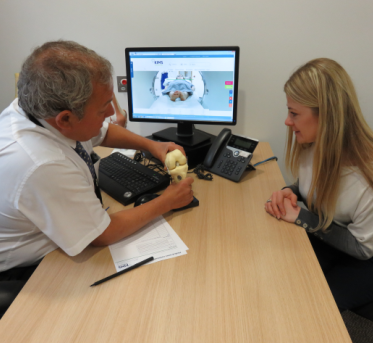

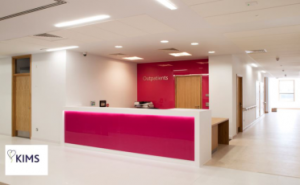 How to make an outpatient appointment
How to make an outpatient appointment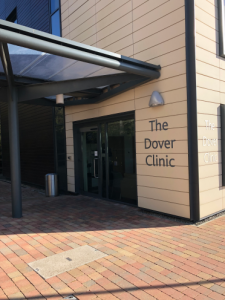 Once you have agreed with Simon that surgery is required for your knee problem, he will discuss an appropriate date for surgery.
Once you have agreed with Simon that surgery is required for your knee problem, he will discuss an appropriate date for surgery.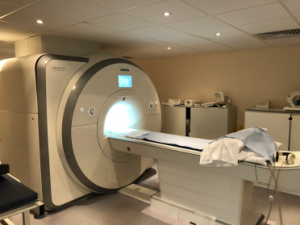 Magnetic resonance imaging (MRI) uses a strong magnetic field and radio waves to produce detailed, usually 2-D images of the inside of your body. MRI scans can show muscles, joints, bone marrow, blood vessels, nerves and other structures within your body and are commonly used to examine the brain, spine, abdomen and pelvis.
Magnetic resonance imaging (MRI) uses a strong magnetic field and radio waves to produce detailed, usually 2-D images of the inside of your body. MRI scans can show muscles, joints, bone marrow, blood vessels, nerves and other structures within your body and are commonly used to examine the brain, spine, abdomen and pelvis.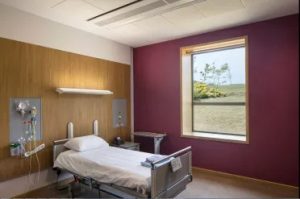 As you are having an operation we ask that you do not eat for 6 hours prior to your surgery. Food includes any drinks with milk or sugar and chewing gum.
As you are having an operation we ask that you do not eat for 6 hours prior to your surgery. Food includes any drinks with milk or sugar and chewing gum. Following your surgery you will be moved from the operating theatre to the recovery room where you will be closely monitored by the nursing staff until it is safe for you to be taken back to your room.
Following your surgery you will be moved from the operating theatre to the recovery room where you will be closely monitored by the nursing staff until it is safe for you to be taken back to your room.